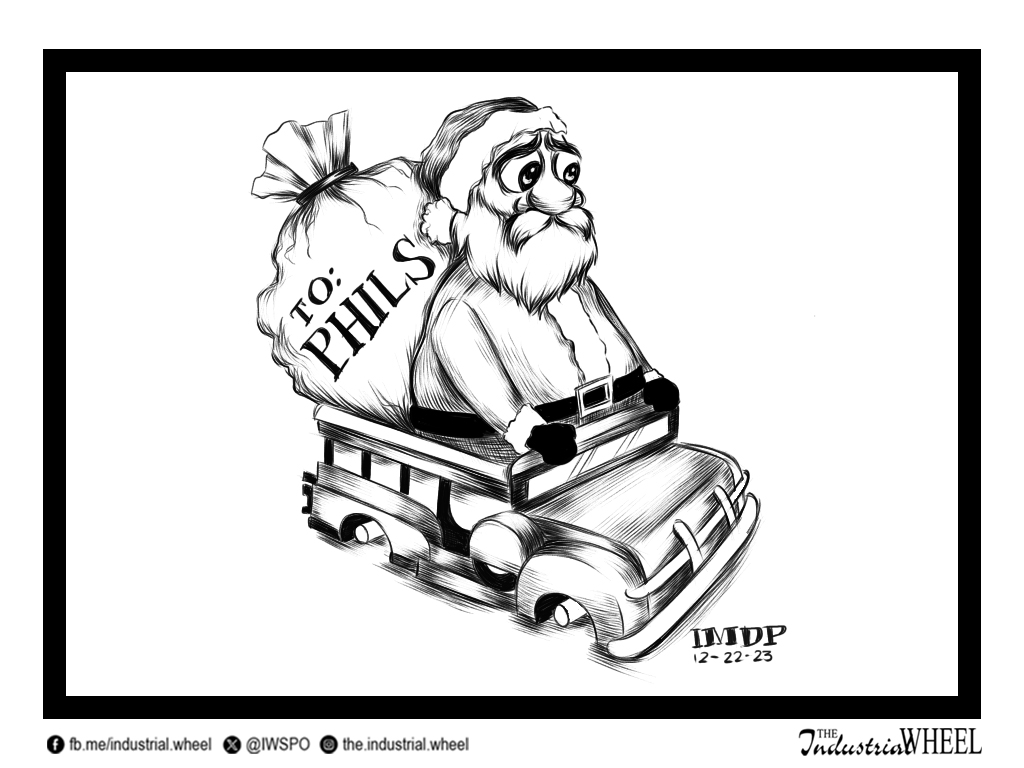
After President Ferdinand ‘Bongbong’ Marcos Jr. announced that there would be no yearend extension today for the consolidation of jeepney drivers to cooperatives or corporations in account of ‘not letting the minority cause further delays’, 200,000 jeepney drivers and operators are in jeopardy of losing their livelihoods, leaving them unable to provide for their families. Against the backdrop of the coming of a new year for everyone, the future of our drivers and operators remain uncertain.
The Land Transportation Franchising and Regulatory Board (LTFRB) started the PUV modernization program under the Omnibus Franchising Guidelines in 2017, with the goal of modernizing all PUVs by 2020. Phasing out 270,00 jeepneys nationwide, the program aimed to modernize and ensure safety of commuters in the country, reduce pollution through environmentally friendly engines, improve fuel cost-efficiency, and provide economic opportunities for local and national manufacturers.
In response to the phasing out of jeepneys, 200,000 drivers and operators led by the Pagkakaisa ng mga Samahan ng Tsuper at Opereytor Nationwide (PISTON) staged a nationwide strike, with former President Rodrigo Duterte and the LTRFB both employing strong-arm tactics to force protesters to join the program including using brute police force and cancelling the franchises of jeepney drivers and operators who participated in the strike.
Following this, the enhanced community quarantine (ECQ) during the Coronavirus-19 pandemic crippled the transport sector with the Federation of Jeepney Operators and Drivers Association of the Philippines (FEJODAP) expressing concerns over the government possibly using the pandemic as an excuse to phase out traditional jeepneys as modern jeepneys were prioritized to resume operations.
With a single unit costing to about P2.4 to P2.6 million each, modernization of PUVs is a tall order for small jeepney drivers and operators who rely on daily operations to recoup expenses who earn more or less about P500 after 12 hours of driving congested roads. While the Development Bank of the Philippines and the Land Bank of the Philippines have established loan facilities for the transport sector, Alyansa Kontra PUV Phaseout Dindo Rosales pointed out that drivers and operators themselves do not want to be in debt. The LTFRB has also said that a subsidy of P160,000 will be provided, but this only covers just below 6% of the cost.
This problem not only extends to our jeepney drivers and operators, but also 28.5 million commuters will be affected. To recoup the cost for modernization, modern jeepneys will have fares of up to P20 just to meet daily expenses. For Filipinos, particularly for students, this fare increase is detrimental as many in the country live on just meager, daily allowances. Contrary to belief, the modernization will also not solve the traffic problem of congested cities. In Metro Manila, jeepneys only account for 2% of its vehicle population.
While unconsolidated jeepneys will be allowed to operate until January 31, 2024 along certain routes, drivers and operators who fail to consolidate until December 31, 2023 on 5 PM will not anymore be allowed to join routes or consolidate as per the LTFRB.
As the modernization program can only be described as anti-poor, the government, the Department of Transportation (DOTr) and the LTFRB should employ sizeable vehicle and fuel subsidies to help with the installments and costs of maintenance as well as concessional loans in order to help them financially. While it is a possibility that jeepney drivers and operators who are unable to participate in the consolidation would forego looking for livelihood in the transport sector, financial assistance should be provided for them as they shift to other forms of livelihood.
Without concrete subsidies and assistance to our jeepney drivers and operators, their future remains uncertain as they are greeting the new year with the possibility of not having the means for livelihood. As commuters, together with jeepney drivers and operators, we must call for a halt of corporate takeover of our public transportation but instead to transition to a nationalized public transportation system that are for the masses and are not anti-poor.
